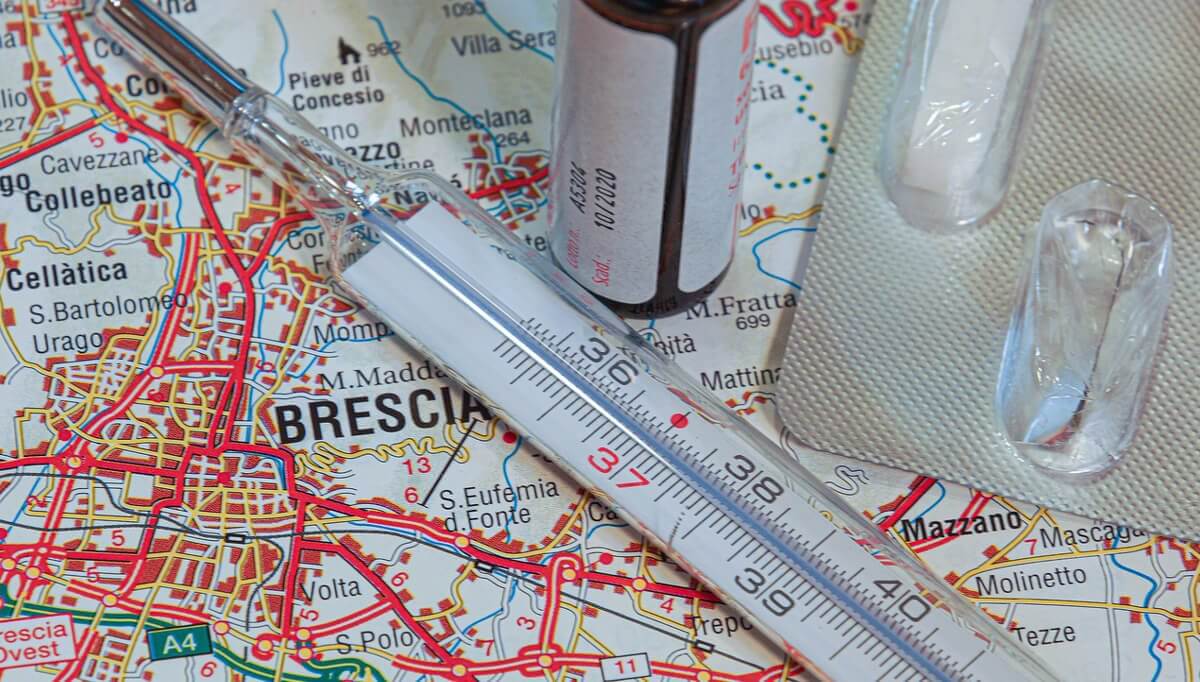Italy will begin this Monday in a hospital in Rome the experimentation in humans of the vaccine against the coronavirus created and produced in this country.
Thousands of people responded to the call for the search for volunteers – just last week there were 5,000 – but finally, 90 will be subjected to the tests at the Lazzaro Spallanzani National Institute of Infectious Diseases.
The vaccine, created, produced, and patented by the Italian biotechnology company ReiThera, based in Castel Romano, has already passed preclinical tests performed both in vitro and in animals.
The first results have highlighted a strong immune response and a good safety profile reported the authorities of the Lazio region, whose capital is Rome, which has financed the vaccine with 5 million euros.
The first five volunteers are men, between 31 and 46 years old, who have passed preliminary medical examinations and have tested their suitability.
They will be injected with the vaccine and if no significant adverse effects are observed they will move on to the next group of volunteers, who will receive a higher dose. The second round should take place between September 7 and 9.
In general, the 90 volunteers chosen are divided into two age groups: 45 between 18 and 55 years old and the same number between 65 and 85 years old. Each group will be divided into three subgroups of 15 people, each of whom will receive a different dose of vaccine.
During “phase 1” each of the volunteers will be injected with a dose of vaccine, and subsequently, each patient will undergo seven controls, the first two days after vaccination, the last at 24 weeks.
Many volunteers are doctors, a detail that has aroused feelings of great approval in the health authorities.
If the results of this phase are positive, “phase 2” could start already in autumn with a greater number of volunteers, both in Italy and in other countries.
Coronavirus cases increasing in Italy
Italy registered 1,071 new cases of coronavirus in the last 24 hours, a figure that has been growing incessantly for a few weeks, and health officials warn that there is a “trend towards progressive deterioration” of the epidemiological situation. The last day there have been three deaths and throughout the country, there are now 924 hospitalized with symptoms and 64 people in intensive care units.
With these data, since the start of the pandemic in February, Italy has had 258,136 cases of coronavirus and 35,430 deaths.
Especially significant is the strong upturn in new cases in the Lazio region (center) whose capital is Rome, with 215 in the last 24 hours, compared to 137 the day before. It is a record figure for this region that even during the hard months of the pandemic was little hit, and according to the regional Health Councilor, Alessio D’Amato, 61% of these new cases are related to returning from vacation from abroad but, above all, from the Italian island of Sardinia, where 97 of the new positives arrived.
“We have never had so many daily cases,” D’Amato said. The previous record was 208 cases diagnosed in a single day, on March 28, in the middle of the pandemic, when Italy was the most affected country in Europe. “They are basically young and asymptomatic. In this phase the problem is not hospitalizations or intensive care, this is under control and we are not concerned, but the chain of transmissions must be blocked in time so that the virus does not spread in the family environment ”, warned the health official.
Lombardy (with the capital in Milan) is the second region with the newest infections on the last day, with 185 cases, followed by Veneto (also in the north, with the capital in Venice), with 160.
According to the weekly bulletin on the evolution of the epidemic published today by the Higher Institute of Health (ISS), “Italy is in an epidemiological phase of transition with a tendency to progressive deterioration”, with a constant increase in new cases the last three weeks. And he adds that from the week of August 10 to 16 “the generalized transmission of the virus throughout the national territory has been verified which, when favorable conditions are met, even causes large outbreaks. This increases the stress in the prevention departments, in charge of tracking all the cases and contacts ”.














